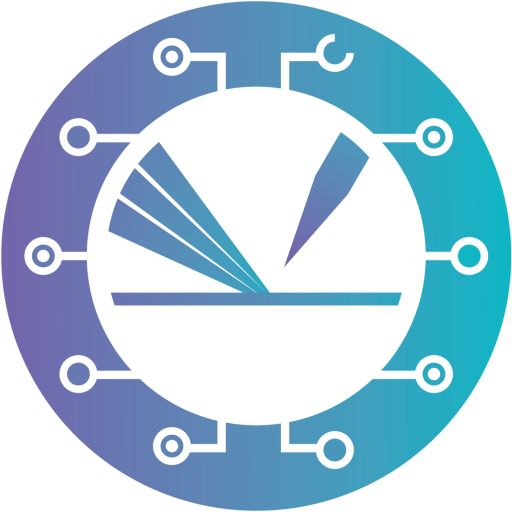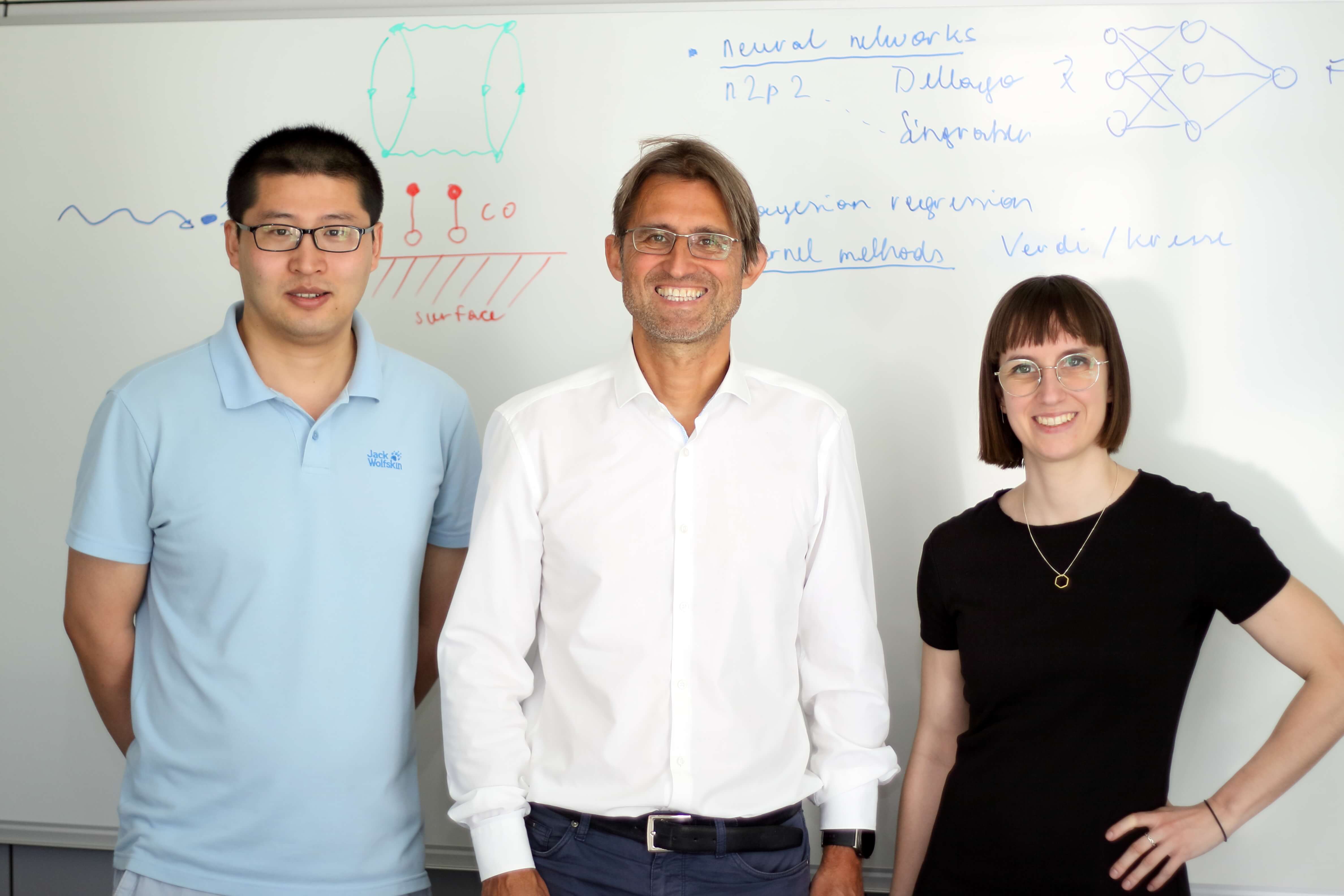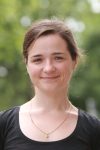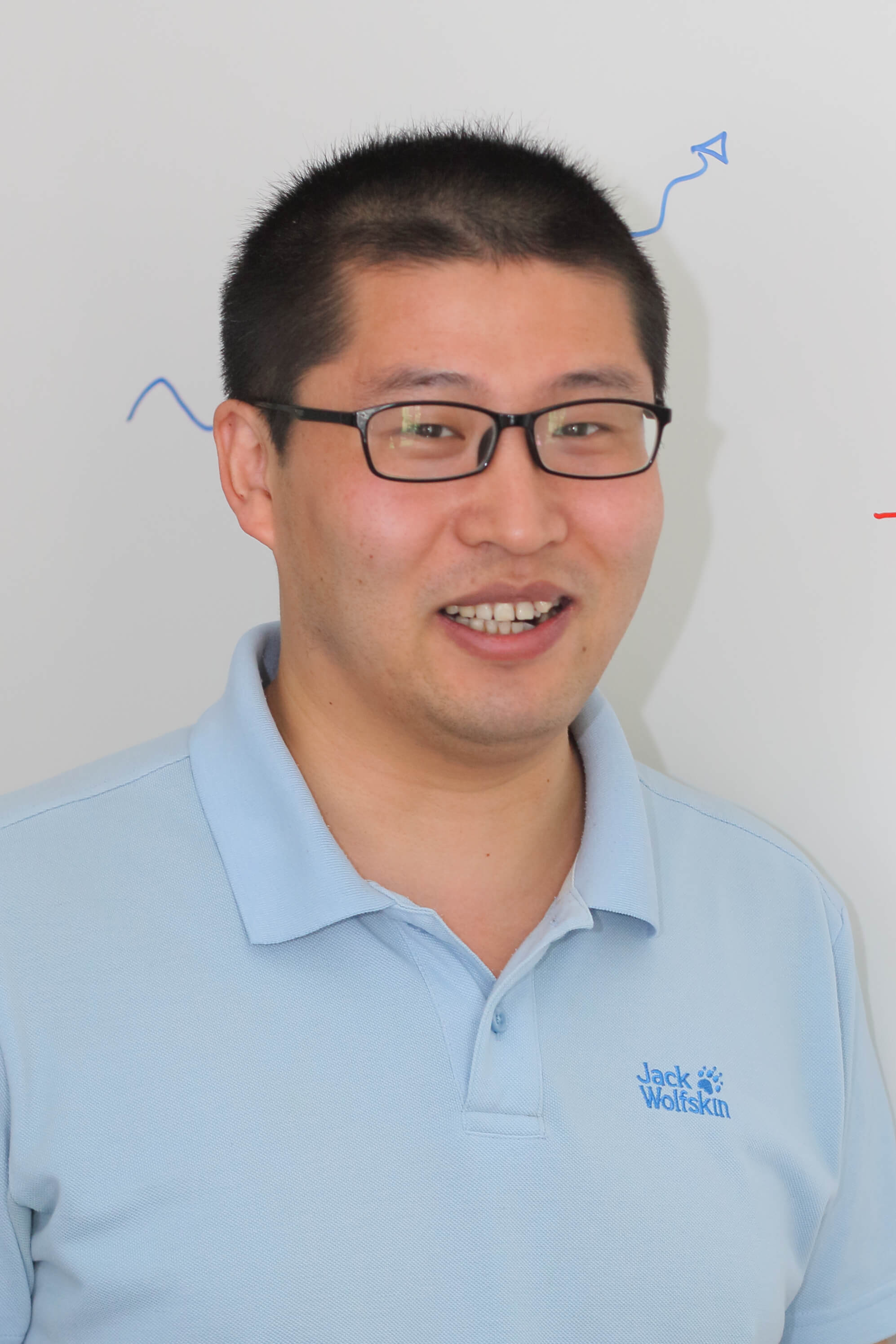Bayesian regression for
multi-level machine-learned potentials
Subproject P03
The first-principles description of the properties of multi-component metal oxides is an exceedingly challenging problem. The reasons are that the configurational space grows exponentially with the number of species and standard Density Functional Theory (DFT) is often not accurate enough. The long-term objective of P03 is to accelerate first-principles calculations by developing machine-learning approaches for the description of the interatomic forces, Born effective charges, and other tensorial properties of multivalent oxides. The project will rely on kernel-based methods and Bayesian inference to implement fully automatic “on-the-fly” learning.
In the first project period, we will develop machine-learned force fields (MLFF) for DFT and DFT+U, whereby the number of components in the FF will be gradually increased. A concise framework for learning tensorial properties will be implemented. We will use this to simulate infrared spectra of oxide materials, which can be readily compared to the finite-temperature spectra measured by the experimental groups.
The difference between DFT and hybrid functionals will be machine-learned to go beyond semi-local functionals (Delta-learning). The long-term perspective is to extend this approach to highly accurate beyond-DFT methods, such as the random phase approximation and quantum chemistry (coupled cluster) methods. Although kernel-based methods are exceedingly accurate, they are often less efficient than NN. We will collaborate with other projects to recast the on-the-fly trained FF into NN potentials to address this issue.
Expertise
The main research efforts of the group are directed towards the development of quantum-mechanical tools for atomic-scale simulations of properties and processes in materials and the application of these methodologies to key areas of condensed matter physics and materials research. An important pillar of the research is the Vienna Ab initio Simulation Package (VASP), a general-purpose ab initio code for solving the many-electron Schrödinger equation. The code is among the world leaders in its field, with more than 3500 licensees worldwide. We have expertise with simulations for a vast number of properties using many different techniques:
- Density functional theory (DFT), including spin and non-collinear DFT
- Linear response theory to calculate phonons and dielectric properties
- Hartree-Fock techniques and many flavors of hybrid functionals
- Many-body perturbation theory, including GW and Bethe-Salpeter
- Wavefunction-based correlated methods (Møller-Plesset perturbation theory)
- Surface science, including growth and oxide formation
- Simulation of nanostructures
- Semiconductor physics: charge trapping, polarons
- Electronic excitations
- Defect energies in extended systems
For TACO, we will adapt our machine-learning techniques to tensorial properties and correlated wavefunction techniques. These techniques are directly integrated into VASP and allow to accelerate finite-temperature simulations by many orders of magnitudes.
Team
Former Members
Publications
2024
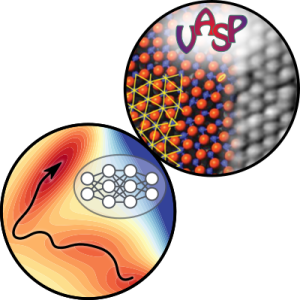
de Hijes, Pablo Montero; Dellago, Christoph; Jinnouchi, Ryosuke; Kresse, Georg
Density isobar of water and melting temperature of ice: Assessing common density functionals
Journal ArticleOpen AccessIn: The Journal of Chemical Physics, vol. 161, pp. 131102, 2024.
Abstract | Links | BibTeX | Tags: P03, P12
@article{Montero-de-Hijes_2024b,
title = {Density isobar of water and melting temperature of ice: Assessing common density functionals},
author = {Pablo Montero de Hijes and Christoph Dellago and Ryosuke Jinnouchi and Georg Kresse},
url = {https://doi.org/10.1063/5.0227514},
year = {2024},
date = {2024-10-03},
urldate = {2024-06-06},
journal = {The Journal of Chemical Physics},
volume = {161},
pages = {131102},
abstract = {We investigate the density isobar of water and the melting temperature of ice using six different density functionals. Machine-learning potentials are employed to ensure computational affordability. Our findings reveal significant discrepancies between various base functionals. Notably, even the choice of damping can result in substantial differences. Overall, the outcomes obtained through density functional theory are not entirely satisfactory across most utilized functionals. All functionals exhibit significant deviations either in the melting temperature or equilibrium volume, with most of them even predicting an incorrect volume difference between ice and water. Our heuristic analysis indicates that a hybrid functional with 25% exact exchange and van der Waals damping averaged between zero and Becke–Johnson dampings yields the closest agreement with experimental data. This study underscores the necessity for further enhancements in the treatment of van der Waals interactions and, more broadly, density functional theory to enable accurate quantitative predictions for molecular liquids.},
keywords = {P03, P12},
pubstate = {published},
tppubtype = {article}
}

Hütner, Johanna I.; Conti, Andrea; Kugler, David; Mittendorfer, Florian; Kresse, Georg; Schmid, Michael; Diebold, Ulrike; Balajka, Jan
Stoichiometric reconstruction of the Al2O3(0001) surface
Journal ArticleOpen AccessarXivIn: Science, vol. 385, pp. 1241–1244, 2024, ISSN: 1095-9203.
Abstract | Links | BibTeX | Tags: P02, P03
@article{Huetner2024,
title = {Stoichiometric reconstruction of the Al_{2}O_{3}(0001) surface},
author = {Johanna I. Hütner and Andrea Conti and David Kugler and Florian Mittendorfer and Georg Kresse and Michael Schmid and Ulrike Diebold and Jan Balajka},
url = {https://www.science.org/doi/10.1126/science.adq4744
https://arxiv.org/abs/2405.19263},
issn = {1095-9203},
year = {2024},
date = {2024-09-12},
urldate = {2024-09-12},
journal = {Science},
volume = {385},
pages = {1241--1244},
publisher = {American Association for the Advancement of Science (AAAS)},
abstract = {Macroscopic properties of materials stem from fundamental atomic-scale details, yet for insulators, resolving surface structures remains a challenge. We imaged the basal (0001) plane of α–aluminum oxide (α-Al_{2}O_{3}) using noncontact atomic force microscopy with an atomically defined tip apex. The surface formed a complex (√31 × √31)R±9° reconstruction. The lateral positions of the individual oxygen and aluminum surface atoms come directly from experiment; we determined with computational modeling how these connect to the underlying crystal bulk. Before the restructuring, the surface Al atoms assume an unfavorable, threefold planar coordination; the reconstruction allows a rehybridization with subsurface O that leads to a substantial energy gain. The reconstructed surface remains stoichiometric, Al_{2}O_{3}.},
keywords = {P02, P03},
pubstate = {published},
tppubtype = {article}
}
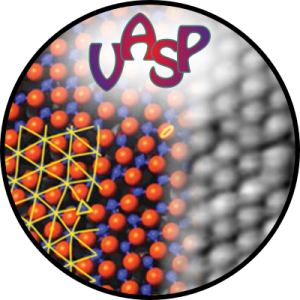
Schmiedmayer, Bernhard; Kresse, Georg
Journal ArticleOpen AccessIn: The Journal of Chemical Physics, vol. 161, iss. 8, pp. 084703, 2024.
Abstract | Links | BibTeX | Tags: P03
@article{Schmiedmayer_2024a,
title = {Derivative learning of tensorial quantities—Predicting finite temperature infrared spectra from first principles},
author = {Bernhard Schmiedmayer and Georg Kresse},
doi = {https://doi.org/10.1063/5.0217243},
year = {2024},
date = {2024-08-28},
journal = {The Journal of Chemical Physics},
volume = {161},
issue = {8},
pages = {084703},
abstract = {We develop a strategy that integrates machine learning and first-principles calculations to achieve technically accurate predictions of infrared spectra. In particular, the methodology allows one to predict infrared spectra for complex systems at finite temperatures. The method’s effectiveness is demonstrated in challenging scenarios, such as the analysis of water and the organic–inorganic halide perovskite MAPbI_{3}, where our results consistently align with experimental data. A distinctive feature of the methodology is the incorporation of derivative learning, which proves indispensable for obtaining accurate polarization data in bulk materials and facilitates the training of a machine learning surrogate model of the polarization adapted to rotational and translational symmetries. We achieve polarization prediction accuracies of about 1% for the water dimer by training only on the predicted Born effective charges.},
keywords = {P03},
pubstate = {published},
tppubtype = {article}
}

Romano, Salvatore; de Hijes, Pablo Montero; Meier, Matthias; Kresse, Georg; Franchini, Cesare; Dellago, Christoph
Journal ArticleOpen AccessarXivIn: arXiv, 2024.
Abstract | Links | BibTeX | Tags: P03, P07, P12
@article{Romano_2024a,
title = {Structure and dynamics of the magnetite(001)/water interface from molecular dynamics simulations based on a neural network potential},
author = {Salvatore Romano and Pablo Montero de Hijes and Matthias Meier and Georg Kresse and Cesare Franchini and Christoph Dellago},
url = {https://arxiv.org/abs/2408.11538},
year = {2024},
date = {2024-08-21},
urldate = {2024-08-21},
journal = {arXiv},
abstract = {The magnetite/water interface is commonly found in nature and plays a crucial role in various technological applications. However, our understanding of its structural and dynamical properties at the molecular scale remains still limited. In this study, we develop an efficient Behler-Parrinello neural network potential (NNP) for the magnetite/water system, paying particular attention to the accurate generation of reference data with density functional theory. Using this NNP, we performed extensive molecular dynamics simulations of the magnetite (001) surface across a wide range of water coverages, from the single molecule to bulk water. Our simulations revealed several new ground states of low coverage water on the Subsurface Cation Vacancy (SCV) model and yielded a density profile of water at the surface that exhibits marked layering. By calculating mean square displacements, we obtained quantitative information on the diffusion of water molecules on the SCV for different coverages, revealing significant anis},
keywords = {P03, P07, P12},
pubstate = {published},
tppubtype = {article}
}
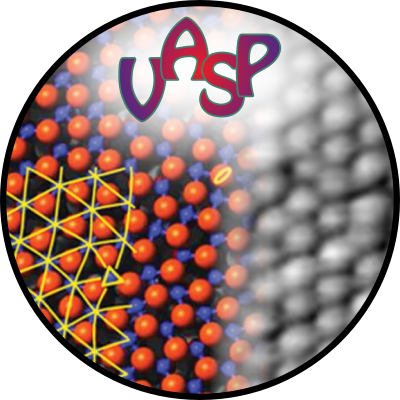
Faller, Carolin; Kaltak, Merzuk; Kresse, Georg
Density-Based Long-Range Electrostatic Descriptors for Machine Learning Force Fields
Journal ArticleOpen AccessSubmittedarXivIn: The Journal of Chemical Physics, 2024, (submitted to the Journal of Chemical Physics).
Abstract | Links | BibTeX | Tags: P03
@article{Faller_2024a,
title = {Density-Based Long-Range Electrostatic Descriptors for Machine Learning Force Fields},
author = {Carolin Faller and Merzuk Kaltak and Georg Kresse},
url = {https://arxiv.org/abs/2406.17595},
year = {2024},
date = {2024-06-25},
urldate = {2024-06-25},
journal = {The Journal of Chemical Physics},
abstract = {This study presents a long-range descriptor for machine learning force fields (MLFFs) that maintains translational and rotational symmetry, similar to short-range descriptors while being able to incorporate long-range electrostatic interactions. The proposed descriptor is based on an atomic density representation and is structurally similar to classical short-range atom-centered descriptors, making it straightforward to integrate into machine learning schemes. The effectiveness of our model is demonstrated through comparative analysis with the long-distance equivariant (LODE) descriptor. In a toy model with purely electrostatic interactions, our model achieves errors below 0.1%. The application of our descriptors, in combination with local descriptors representing the atomic density, to materials where monopole-monopole interactions are important such as sodium chloride successfully captures long-range interactions, improving predictive accuracy. The study highlights the limitations of the combined LODE method in materials where intermediate-range effects play a significant role. Our work presents a promising approach to addressing the challenge of incorporating long-range interactions into MLFFs, which enhances predictive accuracy for charged materials to the level of state-of-the-art Message Passing Neural Networks.},
note = {submitted to the Journal of Chemical Physics},
keywords = {P03},
pubstate = {published},
tppubtype = {article}
}
de Hijes, Pablo Montero; Dellago, Christoph; Jinnouchi, Ryosuke; Schmiedmayer, Bernhard; Kresse, Georg
Journal ArticleOpen AccessIn: The Journal of Chemical Physics, vol. 160, iss. 11, no. 114107, 2024.
Abstract | Links | BibTeX | Tags: P03, P12
@article{10.1063/5.0197105,
title = {Comparing machine learning potentials for water: Kernel-based regression and Behler–Parrinello neural networks},
author = {Pablo Montero de Hijes and Christoph Dellago and Ryosuke Jinnouchi and Bernhard Schmiedmayer and Georg Kresse},
doi = {https://doi.org/10.1063/5.0197105},
year = {2024},
date = {2024-03-20},
urldate = {2024-03-20},
journal = {The Journal of Chemical Physics},
volume = {160},
number = {114107},
issue = {11},
abstract = {In this paper, we investigate the performance of different machine learning potentials (MLPs) in predicting key thermodynamic properties of water using RPBE + D3. Specifically, we scrutinize kernel-based regression and high-dimensional neural networks trained on a highly accurate dataset consisting of about 1500 structures, as well as a smaller dataset, about half the size, obtained using only on-the-fly learning. This study reveals that despite minor differences between the MLPs, their agreement on observables such as the diffusion constant and pair-correlation functions is excellent, especially for the large training dataset. Variations in the predicted density isobars, albeit somewhat larger, are also acceptable, particularly given the errors inherent to approximate density functional theory. Overall, this study emphasizes the relevance of the database over the fitting method. Finally, this study underscores the limitations of root mean square errors and the need for comprehensive testing, advocating the use of multiple MLPs for enhanced certainty, particularly when simulating complex thermodynamic properties that may not be fully captured by simpler tests.},
keywords = {P03, P12},
pubstate = {published},
tppubtype = {article}
}
2023
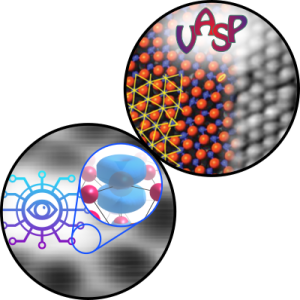
Verdi, Carla; Ranalli, Luigi; Franchini, Cesare; Kresse, Georg
Journal ArticleIn: Physical Review Materials, vol. 7, no. 3, pp. l030801, 2023.
Abstract | Links | BibTeX | Tags: P03, P07
@article{Verdi2023,
title = {Quantum paraelectricity and structural phase transitions in strontium titanate beyond density functional theory},
author = {Carla Verdi and Luigi Ranalli and Cesare Franchini and Georg Kresse},
doi = {10.1103/physrevmaterials.7.l030801},
year = {2023},
date = {2023-03-16},
journal = {Physical Review Materials},
volume = {7},
number = {3},
pages = {l030801},
publisher = {American Physical Society (APS)},
abstract = {We demonstrate an approach for calculating temperature-dependent quantum and anharmonic effects with beyond density-functional theory accuracy. By combining machine-learned potentials and the stochastic self-consistent harmonic approximation, we investigate the cubic to tetragonal transition in strontium titanate and show that the paraelectric phase is stabilized by anharmonic quantum fluctuations. We find that a quantitative understanding of the quantum paraelectric behavior requires a higher-level treatment of electronic correlation effects via the random phase approximation. This approach enables detailed studies of emergent properties in strongly anharmonic materials beyond density-functional theory.},
keywords = {P03, P07},
pubstate = {published},
tppubtype = {article}
}

Ranalli, Luigi; Verdi, Carla; Monacelli, Lorenzo; Kresse, Georg; Calandra, Matteo; Franchini, Cesare
Journal ArticleOpen AccessIn: Advanced Quantum Technology, vol. 6, iss. 4, 2023.
Abstract | Links | BibTeX | Tags: P03, P07
@article{Ranalli2023,
title = {Temperature-dependent anharmonic phonons in quantum paraelectric KTaO_{3} by first principles and machine-learned force fields},
author = {Luigi Ranalli and Carla Verdi and Lorenzo Monacelli and Georg Kresse and Matteo Calandra and Cesare Franchini},
doi = {10.1002/qute.202200131},
year = {2023},
date = {2023-02-22},
urldate = {2023-02-22},
journal = {Advanced Quantum Technology},
volume = {6},
issue = {4},
abstract = {Understanding collective phenomena in quantum materials from first principles is a promising route toward engineering materials properties and designing new functionalities. This work examines the quantum paraelectric state, an elusive state of matter characterized by the smooth saturation of the ferroelectric instability at low temperature due to quantum fluctuations associated with anharmonic phonon effects. The temperature-dependent evolution of the soft ferroelectric phonon mode in the quantum paraelectric KTaO_{3} in the range 0–300 K is modeled by combining density functional theory (DFT) calculations with the stochastic self-consistent harmonic approximation assisted by an on-the-fly machine-learned force field. The calculated data show that including anharmonic terms is essential to stabilize the spurious imaginary ferroelectric phonon predicted by DFT in the harmonic approximation, in agreement with experiments. Augmenting the DFT workflow with machine-learned force fields allows for efficient stochastic sampling of the configuration space using large supercells in a wide temperature range, inaccessible to conventional ab initio protocols. This work proposes a robust computational workflow capable of accounting for collective behaviors involving different degrees of freedom and occurring at large time/length scales, paving the way for precise modeling and control of quantum effects in materials.},
keywords = {P03, P07},
pubstate = {published},
tppubtype = {article}
}

Liu, Peitao; Wang, Jiantao; Avargues, Noah; Verdi, Carla; Singraber, Andreas; Karsai, Ferenc; Chen, Xing-Qiu; Kresse, Georg
Journal ArticleIn: Physical Review Letters, vol. 130, no. 7, pp. 078001, 2023.
Abstract | Links | BibTeX | Tags: P03
@article{Liu2023,
title = {Combining Machine Learning and Many-Body Calculations: Coverage-Dependent Adsorption of CO on Rh(111)},
author = {Peitao Liu and Jiantao Wang and Noah Avargues and Carla Verdi and Andreas Singraber and Ferenc Karsai and Xing-Qiu Chen and Georg Kresse},
doi = {10.1103/physrevlett.130.078001},
year = {2023},
date = {2023-02-17},
urldate = {2023-02-01},
journal = {Physical Review Letters},
volume = {130},
number = {7},
pages = {078001},
publisher = {American Physical Society (APS)},
abstract = {Adsorption of carbon monoxide (CO) on transition-metal surfaces is a prototypical process in surface sciences and catalysis. Despite its simplicity, it has posed great challenges to theoretical modeling. Pretty much all existing density functionals fail to accurately describe surface energies and CO adsorption site preference as well as adsorption energies simultaneously. Although the random phase approximation (RPA) cures these density functional theory failures, its large computational cost makes it prohibitive to study the CO adsorption for any but the simplest ordered cases. Here, we address these challenges by developing a machine-learned force field (MLFF) with near RPA accuracy for the prediction of coverage-dependent adsorption of CO on the Rh(111) surface through an efficient on-the-fly active learning procedure and a Δ-machine learning approach. We show that the RPA-derived MLFF is capable to accurately predict the Rh(111) surface energy and CO adsorption site preference as well as adsorption energies at different coverages that are all in good agreement with experiments. Moreover, the coverage-dependent ground-state adsorption patterns and adsorption saturation coverage are identified.},
keywords = {P03},
pubstate = {published},
tppubtype = {article}
}
2022
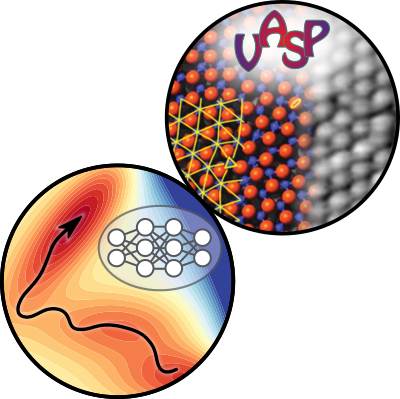
Tröster, Andreas; Verdi, Carla; Dellago, Christoph; Rychetsky, Ivan; Kresse, Georg; Schranz, Wilfried
Hard antiphase domain boundaries in strontium titanate unravelled using machine-learned force fields
Journal ArticleIn: Physical Review Materials, vol. 6, no. 9, pp. 094408, 2022.
Abstract | Links | BibTeX | Tags: P03, P12
@article{Troester2022,
title = {Hard antiphase domain boundaries in strontium titanate unravelled using machine-learned force fields},
author = {Andreas Tröster and Carla Verdi and Christoph Dellago and Ivan Rychetsky and Georg Kresse and Wilfried Schranz},
doi = {10.1103/physrevmaterials.6.094408},
year = {2022},
date = {2022-09-16},
urldate = {2022-09-16},
journal = {Physical Review Materials},
volume = {6},
number = {9},
pages = {094408},
publisher = {American Physical Society (APS)},
abstract = {We investigate the properties of hard antiphase boundaries in SrTiO_{3} using machine-learned force fields. In contrast to earlier findings based on standard \textit{ab initio} methods, for all pressures up to 120kbar the observed domain wall pattern maintains an almost perfect Néel character in quantitative agreement with Landau-Ginzburg-Devonshire theory, and the in-plane polarization P_{3} shows no tendency to decay to zero. Together with the switching properties of P_{3} under reversal of the Néel order parameter component, this provides hard evidence for the presence of rotopolar couplings. The present approach overcomes the severe limitations of \textit{ab initio} simulations of wide domain walls and opens avenues toward concise atomistic predictions of domain-wall properties even at finite temperatures.},
keywords = {P03, P12},
pubstate = {published},
tppubtype = {article}
}
